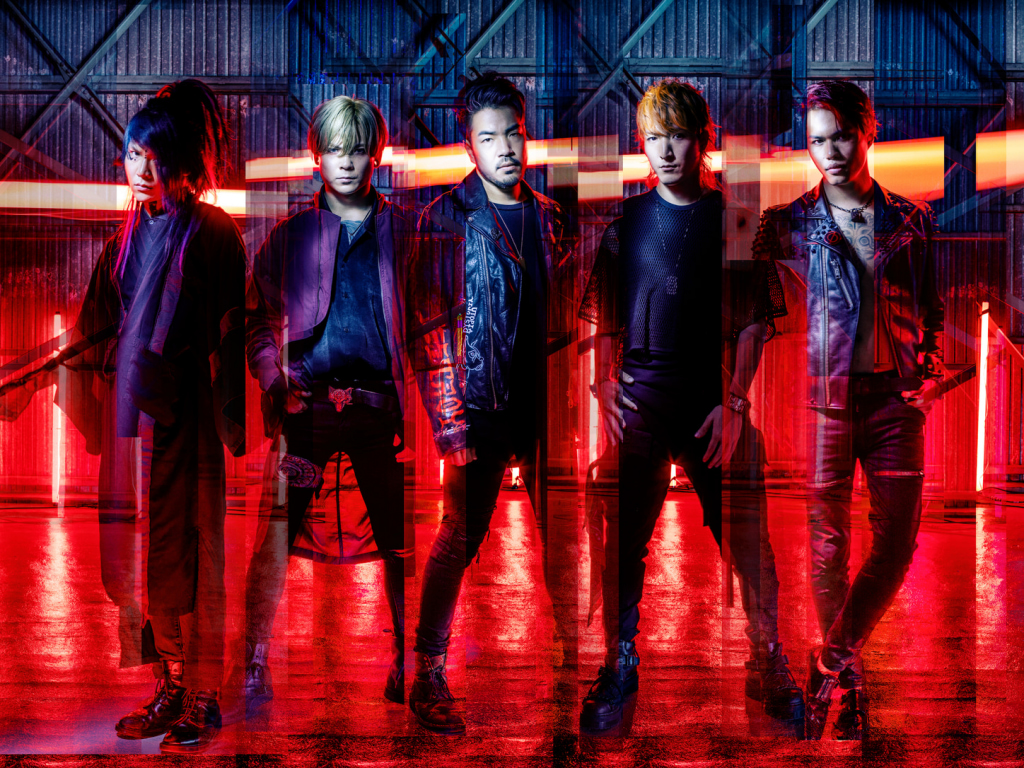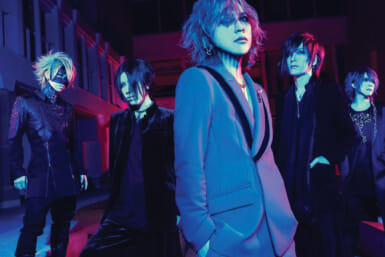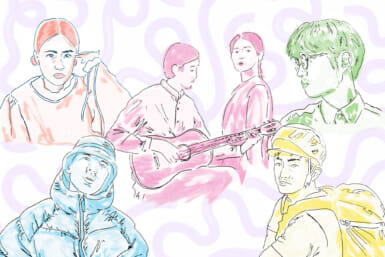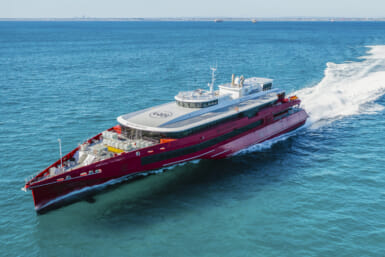Once described as being like “Slipknot tearing The Prodigy limb from limb,” Crossfaith are an outspoken electro metalcore Japanese band that follow their own rules. The quintet from Osaka, who’ve garnered a huge following overseas, have become known for their exhilarating live shows and hardcore records that blend a variety of genres.
“We like to play a bit of everything,” lead singer Kenta Koie tells TW. “Fundamentally we’re an electric metal band with heavy guitar riffs and powerful drumming, but you’ll also hear reggae, rap, hip hop and much more. Since starting out in 2006 we’ve been determined to do things our own way, and our fans appreciate that.”
Their latest record, Ex Machina, was released this summer. It’s a concept album that tells the story of a dystopian futuristic world in which the ruling class of “angels” attempt to control and restrain mindless drone-like humans through artificial intelligence. Resistance to this comes in the form of “devils.”
“We need to start looking beyond our iPhones and start questioning what’s going on around us”
“Angels are trying to protect civilians, but in doing so force them to surrender their individuality, and the devils are aware of this which leads to a battle,” says Koie. “While they are opposing elements, one isn’t necessarily good and the other bad. What we’re trying to get across is the importance of having your own thoughts. Technology is amazing and it’s benefited us as a band greatly. At the same time, we need to start looking beyond our iPhones and start questioning what’s going on around us.”
“Everything nowadays is so convenient, which is a positive thing, yet I feel we’re sometimes bypassing the decision-making process,” adds bassist Hiroki Ikegawa. “It’s a bit like the ‘Brain in a Vat’ scenario [in which a disembodied brain is subject to computer stimulation and operates in a false reality]. Many of the choices we make seem to have already been made for us. When you want to watch a movie you open Netflix and they tell you what films you’re going to be interested in. It’s useful and saves time, but are we really choosing what we want? That’s what the devils on the record are asking.”
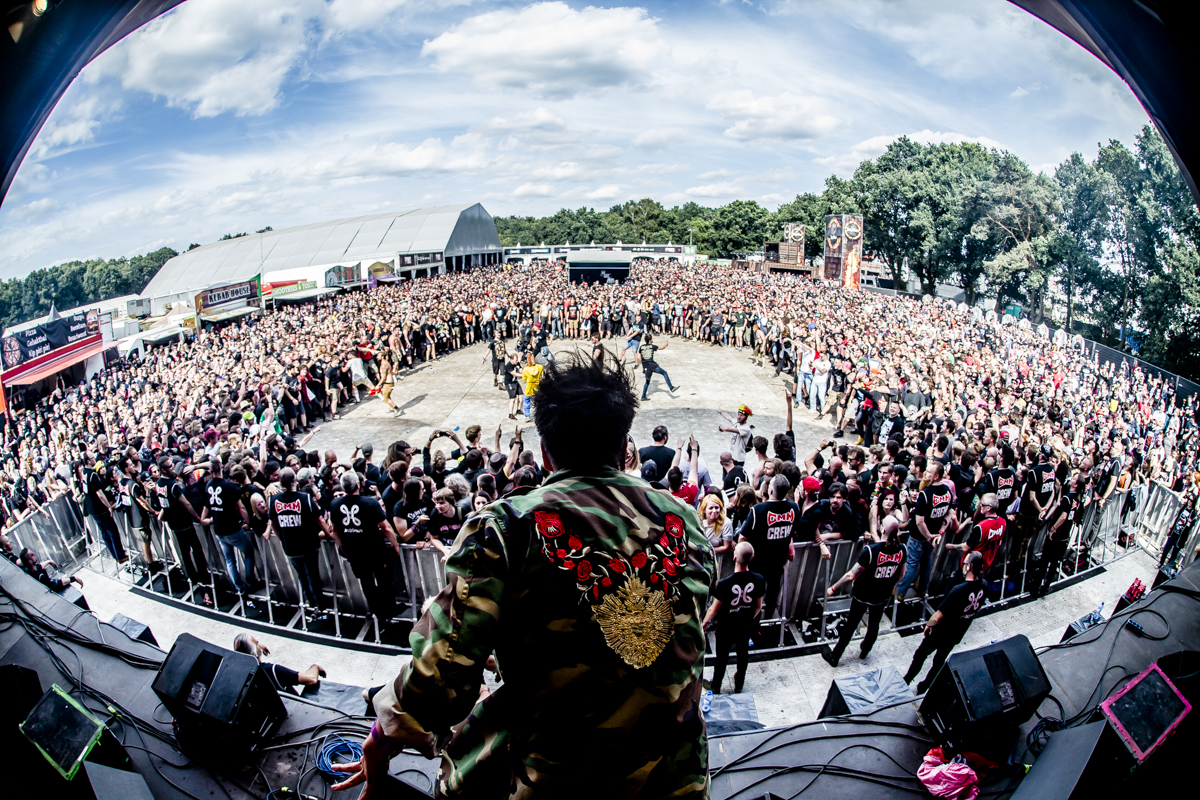
The band’s heaviest album to date, Ex Machina maintains a frenzied pace for the most part, though there are also some more melodic, uplifting songs such as “Lost in You” and “Milestone.” Standout tracks include “Catastrophe,” “The Perfect Nightmare” (a personal favorite of drummer Tatsuya Amano) and “Daybreak,” which guitarist Kazuki Takemura describes as sounding “like the climactic battle in a movie.”
As is often the case on Crossfaith albums, there are a few guest appearances including American hip-hop outfit Ho99o9 who, according to keyboardist/programmer Terufumi Tamano, help to make the already ferocious song “Destroy” even “more savage.” Coldrain’s Masato features on the Linkin Park cover “Faint,” while the most well-known contributor is Rou Reynolds from British alternative rock band Enter Shikari who lends his voice and writing skills to the song “Freedom.”
“That was the first track I wrote for the album, but to make it complete I needed another opinion from outside Japan,” reveals Koie. “We’ve known Rou for years since we started touring with Enter Shikari. He’s like a professor and can be political which was ideal for this song. He and the other artists on the record helped to take it to another level.”
Ex Machina is Crossfaith’s first album since 2015 and their fifth full-length release in total. They officially formed 12 years ago, though Koie, Takemura, and Tamano were performing in a nu-metal cover band before that. After breaking up in 2005, they wanted to start a new, more professional band, initially calling themselves Death of Dragon. “I didn’t like it,” says Tamano. “We wanted to be a big metal band so knew we had to change the name for something that sounded more serious.”
They decided on Crossfaith, which represents the different attitudes and personalities within the group. Drummer Amano, who attended the same high school as Koie, Takemura and Tamano, and bassist Ikegawa completed the line-up.
Their long-term goal was to reach out to international audiences, though first they had to establish themselves domestically, which they did thanks to their energetic local gigs and first two LPs: The Artificial Theory for the Dramatic Beauty and The Dream, the Space. They played overseas for the first time in 2012 supporting American metalcore band Of Mice & Men during their British tour.
“I remember being really nervous that first night,” admits Ikegawa. “It was at Tunbridge Wells and I thought it might be full of metalheads who would be skeptical about this group from Asia they’d never heard of, but we quickly learned they were mostly open-minded.”
“That said, I did nearly get hit with a bottle while we were setting up for the next show,” continues Koie. “For a split-second I was ready to go crazy, but quickly got over it. You get the crowd on your side by killing it, and that’s what we’ve done every time we’ve performed in Europe. Our ambition wasn’t just to play in a few foreign countries and quietly return to Japan; we wanted to show the world what we are made of, and to one day headline the Download Festival in England. We’ve managed to play the main stage so we’re halfway there.”
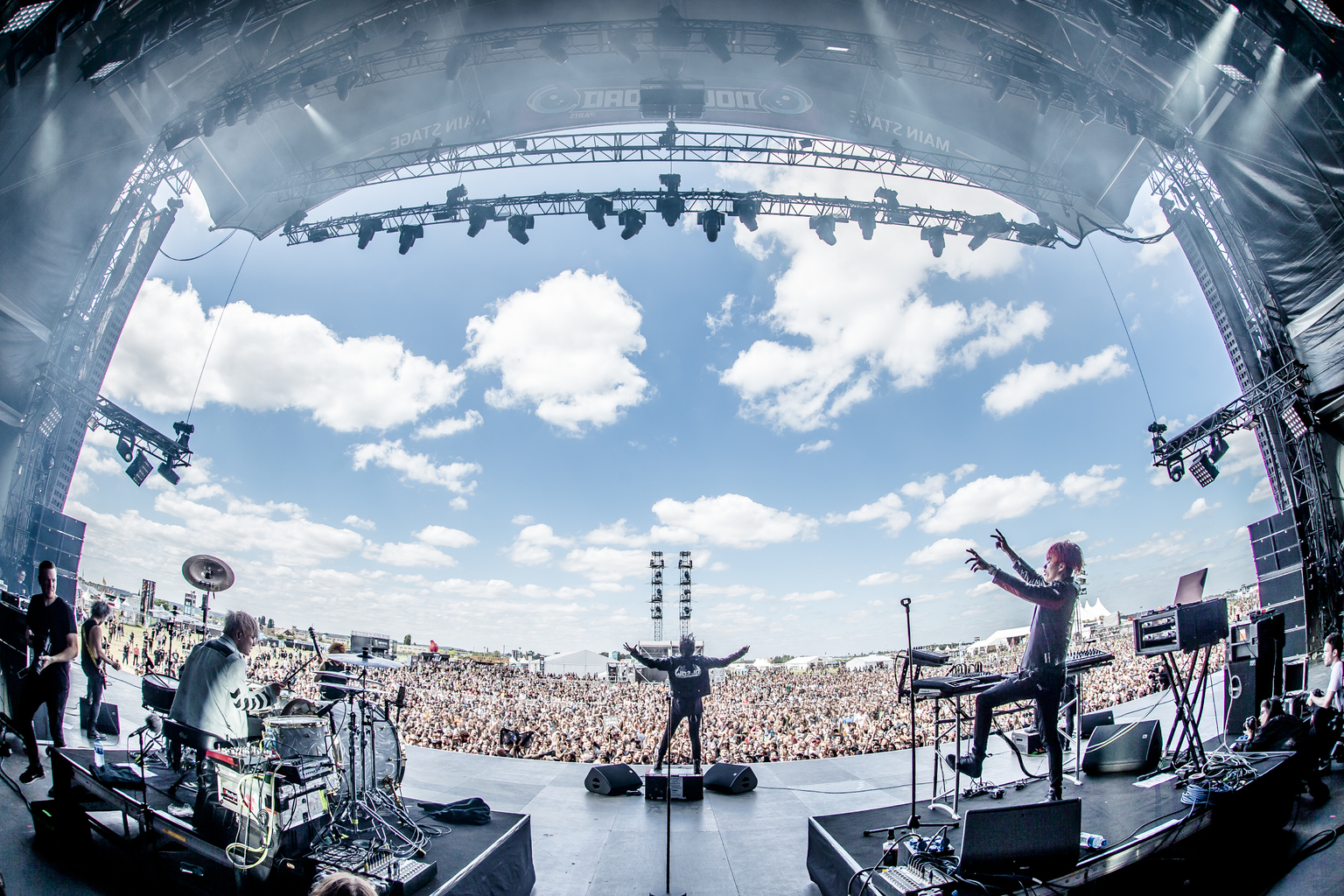
Crossfaith enhanced their reputation abroad with the EP Zion followed by their third LP Apocalyze. The latter, which is seen by many as their finest album to date, features many explosive songs with powerful lyrics including “Only The Wise Can Control Our Eyes,” written about the Fukushima nuclear disaster.
“I don’t set out with the intention of writing something political … but that time I was angry. The government and media were hiding information from the public”
“I don’t set out with the intention of writing something political,” declares Koie. “That time I was angry. The government and media were hiding information from the public and lots of people trusted what they said. It was messed up and I felt it was important to express my opinion on the matter even if people disagreed. It’s harder for mainstream artists to convey their thoughts publicly as they have a responsibility to managers who don’t want any controversy. For us it’s different. We can write about what we want and explore a variety of issues.”
With Xeno, their fourth LP which was released in 2015, the band attempted to take a deeper look at the complexities of the human psyche through the eyes of two characters: a female artificial intelligence entity and a suicidal man, both named Xeno. Inspired by science-fiction movies, the record was once again critically acclaimed.
It was recorded at a testing time for the group. Several months earlier, Takemura suffered a cerebral hemorrhage during a show in Europe. Despite being told by his doctor that he might have to consider quitting the band, the guitarist was determined to bounce back. He made a significant contribution to the Xeno album and then, following months of intense rehabilitation, returned to the stage for an emotional domestic tour that began in their hometown of Osaka in September 2015.
Members of the group managed to get through that difficult time and the bond between them remains as strong as ever.
“We’ve known each other for ages, some of us since we were eight-year-olds, so we have a close connection,” says Koie. “When we started out we were kids dreaming about performing together outside of Japan. Playing non-mainstream music, we felt like dark horses just out to have a good time. We still really enjoy ourselves, but things are different now. Fans expect high quality songs and we have to deliver.”
Before concluding the interview, TW wanted to hear about Crossfaith’s ideal festival line-up. Each member could name one band/artist:
Koie: I’ll go for The Prodigy. They’ve inspired us a lot and the first time I saw them just blew my mind.
Tamano: I want Skazi. He’s an Israeli psychedelic DJ who I’ve been following since high school.
Amano: It has to be Slipknot. I was covering their song “(sic)” when Ken first heard my drumming.
Ikegawa: Denki Groove would be interesting. They’re an influential techno-pop group with a rock attitude.
Takemura: Limp Bizkit. Wes Borland’s my hero. Touring with them was an unbelievable experience.
Crossfaith is set to play 16 shows around Japan as part of their World Tour 2018 between October 27 and December 15. More information about concert dates and their new album at crossfaith.jp

